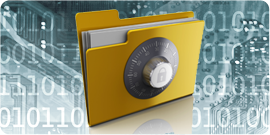Don’t Overlook Tax Deductions for Home Ownership
Article Highlights:
- Mortgage Interest Deduction
- Home Improvement Loan Interest Deduction
- Equity Debt
- Property Tax Deduction
- Private Mortgage Insurance Premiums
- Solar Energy Credits
- Impairment-Related Home Expenses
- Points Deduction
- Home Office Deduction
Whether you already own a home or are considering buying one, you should be aware of the many tax benefits that go along with home ownership. There are plenty of reasons for owning a home, including the potential for capital appreciation and the fact that many of the costs are tax deductible, while rent is generally not.
Mortgage Interest Deduction – Although it may seem that you will never get that mortgage paid off, keep in mind that unmarried taxpayers and married couples can deduct, as an itemized deduction, the interest on up to $1 million of acquisition debt plus $100,000 of equity debt on their first and second homes, provided the loans are secured by the homes. A married taxpayer filing separately is limited to deducting the interest on $500,000 of acquisition debt and $50,000 of equity debt.
Home Improvement Loan Interest Deduction – If you took out a loan secured by your home to make improvements on your main or a second home, that mortgage is treated the same as home acquisition debt, and the interest you pay on that loan is deductible as acquisition debt, so long as the combined total acquisition debt of the two homes does not exceed the $1 million limit on acquisition debt. Even if it does exceed the $1 million limit, the excess interest on up to the $100,000 equity debt limit may still be deductible. However, if you used the loan money to make repairs rather than improvements, the debt would only qualify as equity debt.
Equity Debt – If you used the equity in your home to borrow money to buy a car, take a vacation, or for another use, interest paid on that debt is deductible up to the $100,000 equity debt limit. That is why it is sometimes better to finance large purchases with a deductible home equity loan rather than a non-deductible consumer loan.
Property Tax Deduction – If you itemize your deductions, you can deduct the property taxes you paid during the year on your home. However, be careful; generally property taxes are billed on a fiscal year basis, so the amount billed may cover parts of two years. You can only deduct what you actually paid during the year. If you have an impound account (sometimes called an escrow account) with your mortgage lender, the amount paid will be included on the lender’s annual statement. Also be aware that if you are subject to the alternative minimum tax (AMT), a deduction for taxes is not allowed when computing the AMT.
| CAUTION: Neither home equity debt interest nor property taxes are deductible for alternative minimum tax (AMT) purposes, and their deduction for regular tax may create an AMT add-on tax. |
Private Mortgage Insurance Premiums – Generally when homebuyers are unable to make a 20% down payment when purchasing a home, the lender will require them to obtain private mortgage insurance (PMI) and the insurance premiums that go along with it. To be deductible, the insurance contract must have been issued after December 31, 2006. Those premiums are deductible if incurred for the purchase of your first or second home, and they are not limited by the $1 million limitation on home acquisition debt.
The deductible amount of the premiums phases out ratably by 10% for each $1,000 by which the taxpayer’s AGI exceeds $100,000 (10% for each $500 by which a married separate taxpayer’s AGI exceeds $50,000). If AGI is over $109,000 ($54,500 married separate), the deduction is totally phased out.
Congress failed to extend this deduction, and thus 2016 is the last year for it. If you are stuck with a PMI and your equity in your property has grown to be greater than 20% (you’ve paid down the mortgage balance to 80% of the home’s original appraised value), you may want to contact your lender about removing the PMI, refinancing to get rid of it, or obtaining an updated appraisal. When the balance drops to 78%, the mortgage servicer is required to eliminate PMI. (These rules generally don’t apply if your loan is guaranteed by the Federal Housing Administration (FHA) or Department of Veterans Affairs (VA).)
Solar Energy Credits – Through 2021, taxpayers can get a tax credit on their federal tax return for purchasing and installing solar electric or solar water heating systems. The credit is 30% of the cost through 2019, at which time it begins to phase out and the credit is reduced to 26% for 2020 and 22% for the final year of 2021.
The credit is nonrefundable, which means it can only be used to offset a taxpayer’s current tax liability, but any excess can be carried forward to offset tax through 2021. Both the solar electric and the solar water systems qualify for credit if installed on a taxpayer’s primary and secondary residences. However, no credit is allowed for heating water for hot tubs and swimming pools.
Impairment-Related Home Expenses – If you, your spouse or a dependent living in your home has a physical handicap and you make modifications to the home or install special equipment to alleviate that disability, those costs may be deductible as a medical expense. The portion of the cost of permanent improvements that increases the value of the home is not deductible, but the difference can be included as a medical expense. However, home modifications made to accommodate a home for an individual’s handicap generally do not increase the value of the home and can be included in full with your medical deductions. These improvements include, but are not limited to, the following items:
- Constructing entrance or exit ramps for the home,
- Widening doorways at entrances or exits to the home,
- Adding handrails, support bars and grab bars,
- Lowering or modifying kitchen cabinets and equipment, and
- Installing porch and stair lifts.
Points Deduction – Points are a form of prepaid interest; one point is equal to 1% of a loan amount. Points are often labeled “loan origination fees,” “premium charges,” etc. At times, certain loan charges may be called points but are really amounts lenders charge for setting up a loan. Such “service charge points” aren’t normally deductible.
Generally, prepaid interest must be amortized (deducted) over the life of a loan; however, tax law carved out a special rule that allows points incurred for purchase of a primary residence to be fully deducted on the return for the year in which they are paid. This special rule also applies to loan points incurred for home improvement loans.
Home Office Deduction – If you are self-employed, you may qualify for a deduction for the business use of your home, commonly known as the home office deduction. You may also qualify if you are an employee and the use of the home is for the convenience of the employer. In either case the portion of the home used for business qualifies for the deduction only if it is used exclusively for business.
There are two methods that can be used to determine the deduction: (1) the actual expense method, where you prorate the home expenses such as utilities, insurance, maintenance, interest, taxes and depreciation, or (2) a simplified deduction, which is $5 per square foot of office space, with a maximum square footage of 300. If the latter method is used, mortgage interest and real property tax deductions may be claimed as usual as part of itemized deductions, but a proration of other home-related expenses isn’t deductible. In either case, the deduction is limited to the income from the business activity.
If you have questions about tax issues related to home ownership or if you are considering purchasing a home and want to understand how the home ownership will impact your taxes, please give this office a call.




